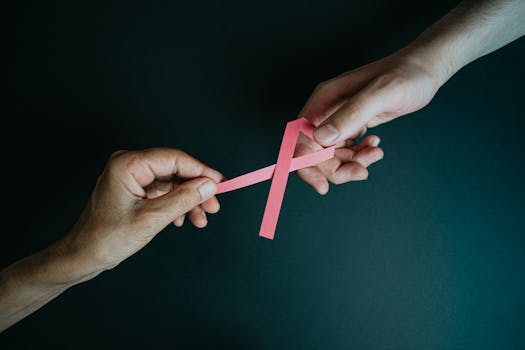Delving into the Depths: Understanding Psychosis and its Impact
Psychosis is a debilitating mental health condition that significantly impacts a person's perception of reality. Characterized by a disconnection from reality, it manifests in a range of symptoms that can be profoundly disruptive to daily life. This article explores the complexities of psychosis, including its causes, symptoms, diagnosis, treatment, and the importance of support for those affected. Understanding psychosis is crucial for reducing stigma and improving the lives of individuals experiencing this challenging condition.
Keywords: Psychosis, schizophrenia, mental health, hallucinations, delusions, treatment, diagnosis, symptoms, support, recovery, antipsychotic medication, cognitive behavioral therapy, family therapy, social support.
What is Psychosis?
Psychosis isn't a single disorder in itself, but rather a symptom cluster. It's a condition where a person loses touch with reality, experiencing thoughts, feelings, and perceptions that are significantly distorted. These distortions can lead to significant difficulties in daily functioning, impacting relationships, work, and overall well-being. While often associated with schizophrenia, psychosis can also be a symptom of other conditions like bipolar disorder, severe depression, and substance-induced psychosis. Furthermore, it can occur temporarily due to extreme stress or trauma, or as a result of certain medical conditions or medication side effects.
Recognizing the Symptoms:
Identifying psychosis requires understanding its hallmark symptoms, which can vary greatly in severity and presentation from person to person. Key symptoms include:
- Hallucinations: These involve perceiving things that aren't actually there. Hallucinations can affect any of the five senses – auditory hallucinations (hearing voices) being the most common, followed by visual hallucinations (seeing things). Other less frequent hallucinations can involve touch, smell, or taste.
- Delusions: These are fixed, false beliefs that are resistant to reason or evidence. Delusions can range from grandiose beliefs (believing oneself to be exceptionally powerful or important) to persecutory delusions (believing others are plotting against them) or referential delusions (believing that everyday events have special meaning directed towards them).
- Disorganized Thinking and Speech: This can manifest as difficulty expressing thoughts coherently, jumping between unrelated topics, or using words in unusual ways (neologisms).
- Disorganized or Abnormal Motor Behavior: This can range from agitation and restlessness to catatonia (a state of immobility or stupor).
- Negative Symptoms: These involve a decrease or absence of normal functions, such as diminished emotional expression (flat affect), lack of motivation (avolition), and difficulty with social interaction (asociality).
- Genetics: A family history of psychosis significantly increases the risk.
- Brain Chemistry: Imbalances in neurotransmitters, particularly dopamine, are thought to play a role.
- Brain Structure and Function: Studies have revealed subtle differences in brain structure and function in individuals with psychosis.
- Environmental Factors: Stressful life events, trauma, and substance abuse can trigger or exacerbate psychotic symptoms.
- Medication: Antipsychotic medications are the cornerstone of treatment, helping to reduce the severity of positive symptoms like hallucinations and delusions.
- Psychotherapy: Cognitive behavioral therapy (CBT) can help individuals identify and manage their symptoms, develop coping strategies, and challenge distorted thinking patterns. Family therapy can provide support and education for family members, improving communication and reducing stress.
- Social Support: Access to supportive social networks, including peer support groups and community resources, is essential for recovery.
- Other Interventions: Depending on individual needs, other interventions might include occupational therapy, vocational rehabilitation, and supported housing.
It's crucial to remember that the presence of these symptoms doesn't automatically equate to a diagnosis of psychosis. A comprehensive assessment by a mental health professional is necessary to rule out other potential causes and arrive at an accurate diagnosis.
Causes of Psychosis:
The exact causes of psychosis are complex and not fully understood. However, research suggests a combination of factors contributes to its development:
Diagnosis and Treatment:
Diagnosing psychosis involves a thorough evaluation by a psychiatrist or other qualified mental health professional. This typically includes a comprehensive clinical interview, psychological assessments, and possibly neurological examinations to rule out other medical conditions.
Treatment for psychosis is multifaceted and typically involves a combination of approaches:
Living with Psychosis: Hope and Recovery:
While psychosis can be a challenging condition, recovery is possible. With appropriate treatment, support, and self-management strategies, individuals can lead fulfilling lives. Early intervention is crucial, as it can prevent the development of chronic symptoms and improve long-term outcomes. The emphasis is shifting from a solely medical model to a recovery-oriented approach that empowers individuals to take control of their lives and achieve their goals.
Reducing Stigma:
The stigma surrounding psychosis remains a significant barrier to seeking help and achieving recovery. Open conversations, accurate information, and empathetic understanding are crucial in dismantling these harmful stereotypes. By promoting awareness and fostering a culture of support, we can create a society where individuals with psychosis feel safe, accepted, and empowered to live their lives to the fullest. If you or someone you know is experiencing symptoms of psychosis, seeking professional help is the first and most crucial step toward recovery and a better quality of life.

